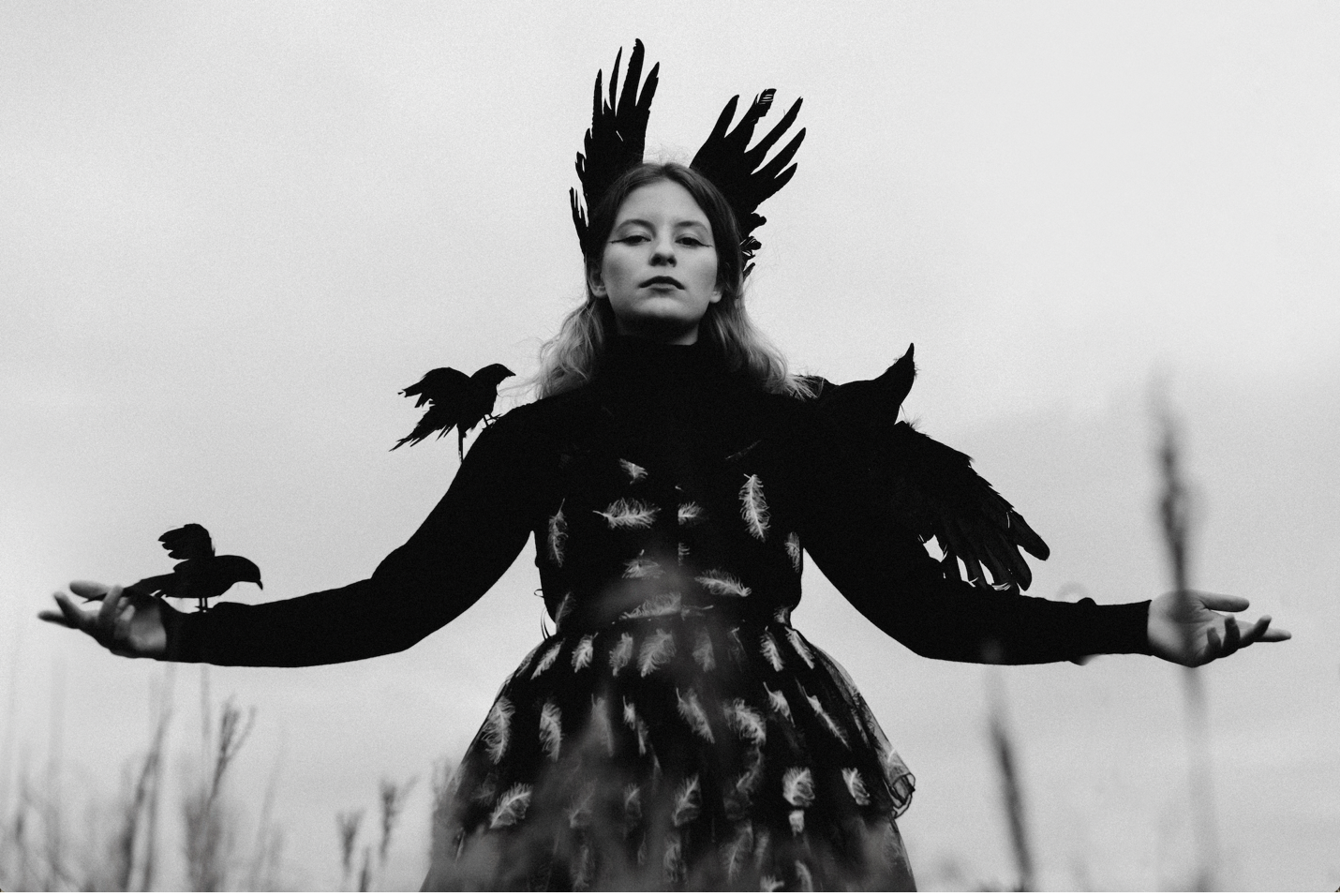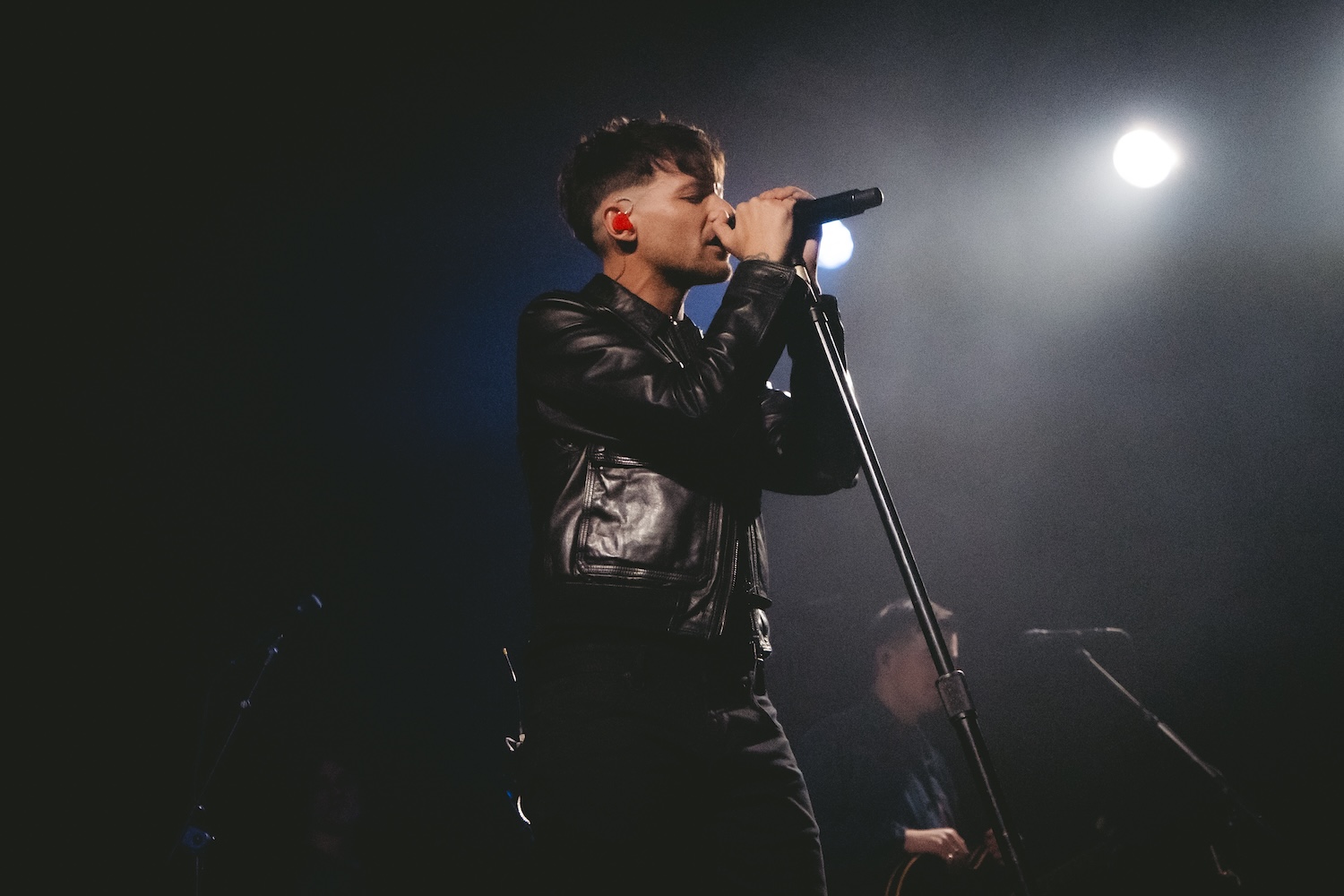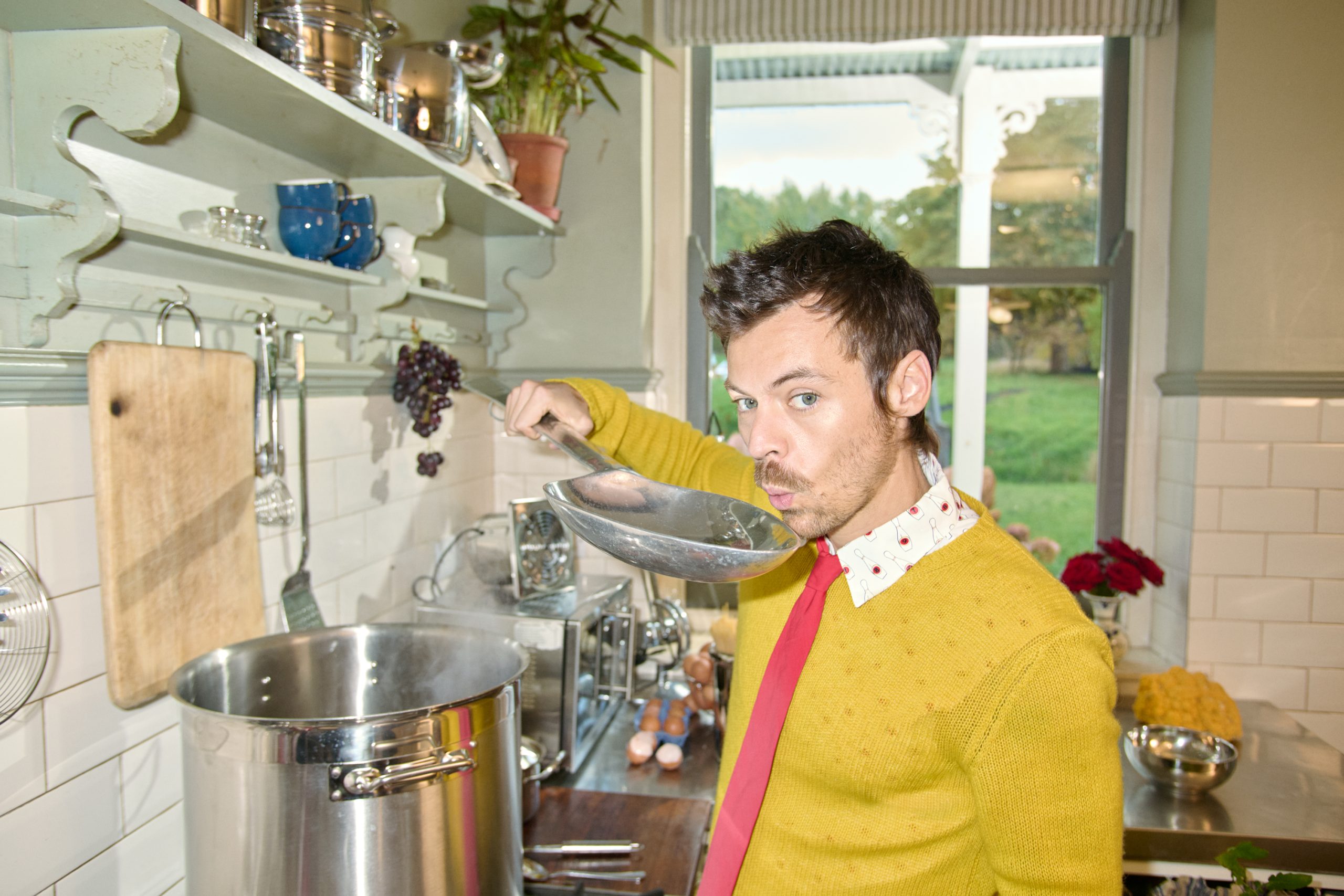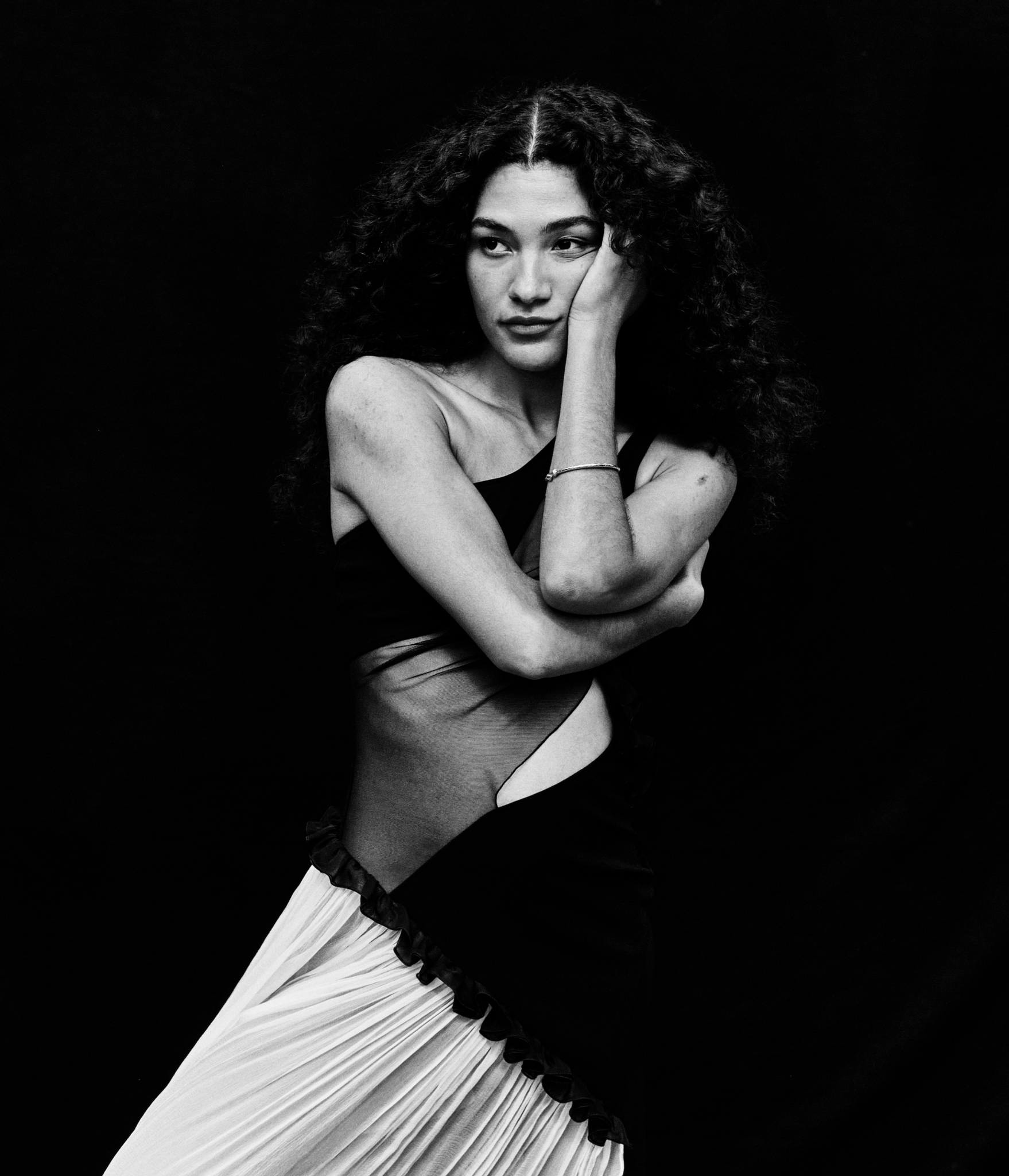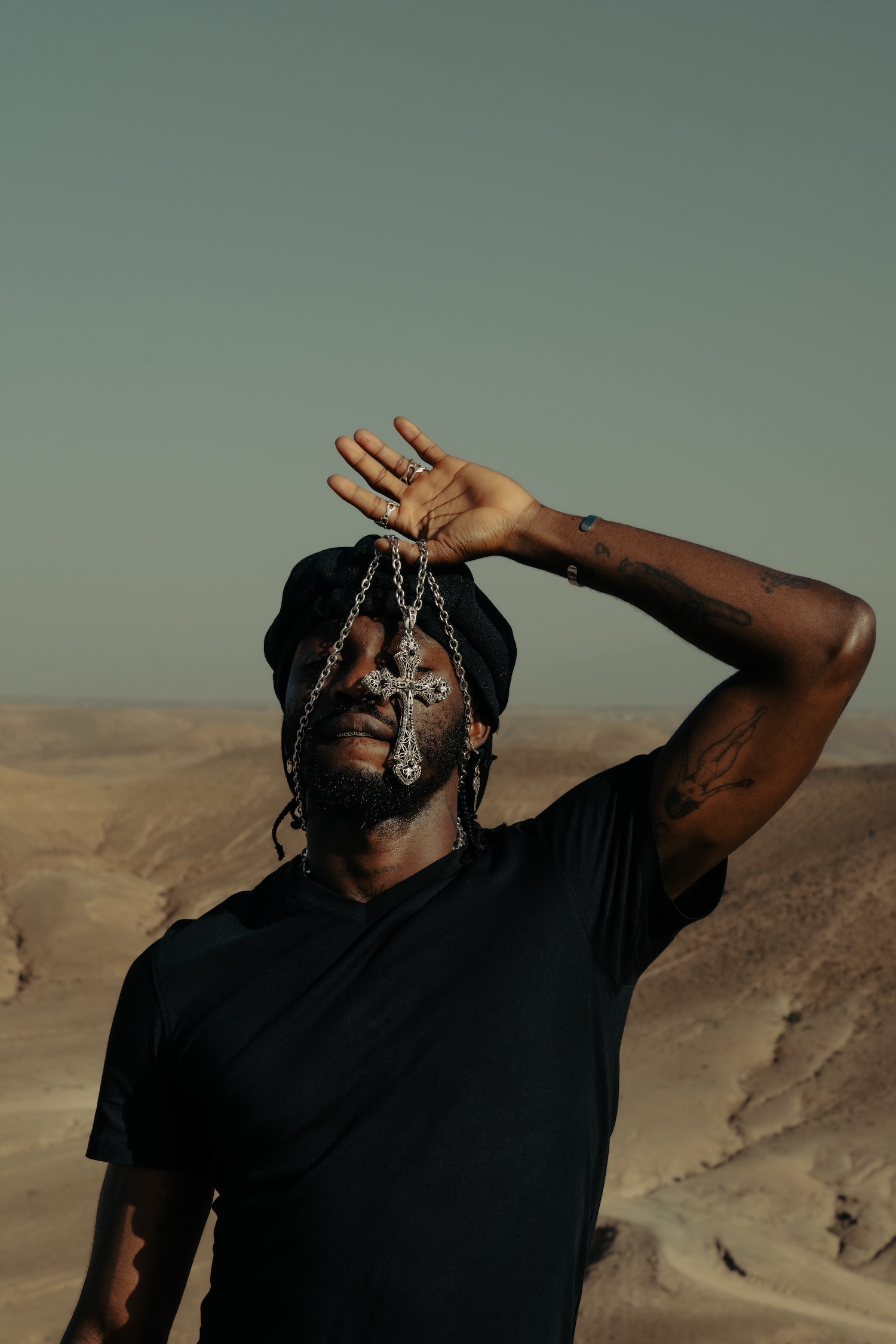Sparking a feminist movement all over social media, most notably TikTok, with her song “Labour,” used in hundreds of ‘Run Like a Girl’ edits on the platform, Paris Paloma’s melancholic voice is the burning ember to help light a revolution. Illustrating the emotional labour women have been made to do throughout history, and the toll it takes, the song has taken a life of its own, becoming an anthem for women, minorities, and the disenfranchised across the world. Paloma has been catapulted into fame, and with it, a voice and spotlight, she hadn’t been expecting.
With her debut album Cacophony released in August of 2024, her star has steadily been on the rise, illuminating her talent and the messages her music carries along with it. Written to cope with her own emotions, she had no idea the ripple effects her lyrics would have. Whether it’s stories of perseverance against all odds, a deep-seated rage for the systems currently in power, or realizing that you are enough in a world dead-set on telling you otherwise, Paloma has struck a chord with fans, even going so far as to feature some of their voices on “Hunter,” another favorite off the album. The community she has around her is truly a streak of joy in a time when joy is hard to come by. Affectionately called ‘Faries,’ her fans have made Paloma’s concerts into a celebration, filled with revelry, book exchanges, note-giving, and dancing. She takes no credit for it, incredibly grateful to watch her fans spread a little happiness.
Making her North American debut on Late Night with Stephen Colbert earlier this March and lending her voice to the animated film Lord of the Rings: War of Rohirrim, Paloma, is well on her way to becoming a household name.
In conversation with 1883 Magazine’s Dana Reboe, Paris Paloma discusses Cacophony, the love she has for her fans, what visiting Joan of Arc’s signature meant to her, how being a part of the Lord of the Rings universe is a dream come true, and so much more.
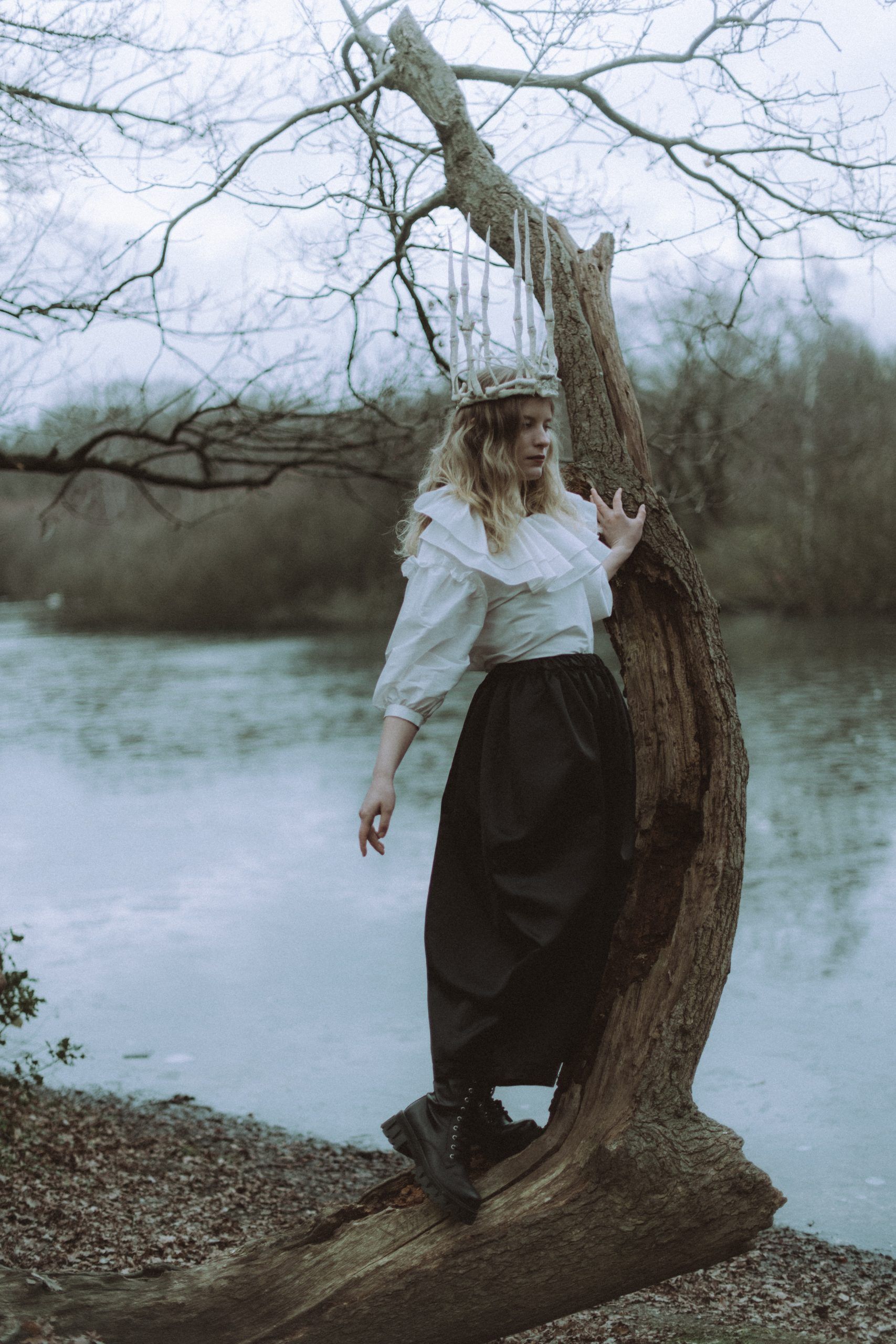
Paris, thank you so much for your time today! Let’s turn back the clock to when you went viral on TikTok. What was it like for you to watch the explosion of “Labour” overnight?
It was so important to me in terms of feeling like I had been really heard. When I wrote the song, it was not written with the knowledge that it would go on to do what it did. It was written in an act of frustration and out of a need to feel like I had a voice. The perpetual exhaustion and anger that not being heard creates, watching the women around you receive the same treatment, the exploitation of women and womanhood, can make any effort feel so futile. And that was what writing the song was like alone in my bedroom. And it went on to do what it did. I cannot express how grateful I am, but also that the song is so much bigger than me now. It has been made into something new by women of different experiences and experiences that are different from mine. That’s what the song has become. And I’m so grateful.
And still years later, it’s become a feminist anthem across the world. You mentioned writing it alone in your bedroom. Can you take me back to when you penned it? What were you feeling? I know anger is an obvious one, but what was going through your head when it was in its first iterations?
In its first iteration, it was two songs. I think it was the bridge and the verses that were that were one song. And then the chorus was another one.I was writing about a particularly emotionally grueling and exhausting relationship I had been in. With a man, who was not emotionally intelligent and was unkind. The trauma of that and the exhaustion, makes you feel like you’re running a marathon every day. You’re doing all this work to be loved by someone who’s an adult and just hasn’t learned how to empathize and be loving. That was a song on its own. And then I started writing this bridge about these roles that women are expected to play. And we’re living in a time now where it’s not even expected. In many places, there is an attempt to enforce and an attempt to silence the voices of women who don’t adhere to the roles of being a mother, a therapist, and a maid for their partners and acquiescing to this role of constant giver, with that choice being stripped from them, which is the most important part. I was writing these two songs, and I just realized quite early on that it was the same song. It came from the same place. It came from the same power system of exploiting everything women could have to give and then taking their choices away.
Moving to your debut album, Cacophony, how long was it in the works? Where did you pull inspiration from? And how does it feel to see the fan response? Do you have any stories of fans telling you how your work resonated with them?
I can’t even put my appreciation into words. The album took a while to make, mostly because there were a lot of the songs [laughter]. I was writing when I didn’t know that there was going to be an album. I was just going through my life and documenting it in the songs because I needed them, I needed to write them.That was what got me through periods of mental struggle and adversity. And when it came time, I sort of decided, “Yeah, I think it’s an album that needs to be made.” I was looking back at these songs, and I realized, retroactively, how they had documented so much of my life.I continued writing some more and it became this biographical work.
Some parts of it are my more personal mental landscape. Then other parts are overtly how patriarchy has damaged so much about myself, my self-perception, and my mental health. I think it’s impossible to be a woman and talk about your mental health without talking about patriarchy because the trauma it invokes is incredible.
To that end, I’ve had such an incredible response from people. There are some songs, that I wrote so personally, and I don’t talk about why those songs were written, and who was who, but the people who resonate with them know, and they’ll come to me, with their stories. Whether it has empowered them to escape abuse, or escape relationships, or escape the way they’ve been berating themselves in their mind, it’s so incredibly important to me and so fulfilling, and I’m so grateful for that.
“Hunter“ is another song off your album that uses the voices of the community to create this beautiful chorus behind you. Where did that idea come from? It must have felt good seeing it all come to fruition, it’s such a gorgeous song.
Oh, thank you. The idea of doing the Cacophony version came from “Labour,” and what that song became. Again, it became something much bigger than me, and a year on from having released it, it had become this moment, and this unifying song for women of different experiences, and I can take no credit for that. That goes entirely to the women of different experiences who have been using their voices to uplift other women and empower themselves. I wanted a song that would reflect that. Therefore, I invited all my listeners to put their voices on it, and there are hundreds of voices on that song now, on that version.
Hunter was another song that I noticed when it was released, it was one of my most vulnerable songs on the album, that I wrote in the wake of a dark period in my mind, and people resonated with it incredibly strongly. I was really surprised because I had expected it to go under the radar, but it didn’t. People resonated with it, they felt it, and that really made me want to invite all the voices of those who had resonated with it so strongly, and who had their own stories of trying, and fighting against adversity. To come together on that song, and sing, sing the words that had meant so much to them, it came together so beautifully, I’m so proud of it.
As you should be. Moving away from the album for a second, you attended the UK Women’s March. Can you talk a little bit about your experience, what it meant to you, and why it’s so important, especially now, to show our resistance?
It is so, so incredibly important, and it was so important to me at that time, and still now. I had been watching the world, and moving through it, with all the events that we are seeing unfold, particularly in the West, and feeling so incredibly hopeless, and that’s by design. That is because there are people in power who would like you to believe that you do not have power and that you can do nothing to empower yourself, and the women around you.
I went to that march, and it was so needed on a personal level. To be with women, and with male allies, and with queer folk, and trans people, and to see the solidarity, and the power in people when they come together because that is the most important thing in a time like this. There’s no change in individualism, and it’s all very well and good keeping up to date with every horrific thing that’s happening, but there is an intended phenomenon, I think, for everyone to feel powerless, and look at their phones alone. But going to that march – the organizers did such a wonderful job, there was the joy, the power, and the anger that was there with thousands of women, I was so proud to walk alongside them. To listen to so many wonderful speakers who spoke for refugee women, who spoke for abortion clinics, and lawyers whose specialty is protecting women who have been victims of domestic violence and gender-based violence.
There are so many things that we have to be angry about, and we shouldn’t have to be, but we have the power to come together through intersection, with women of all different experiences and uplift those women who know the most about these systems of power. That’s what that day meant to me. I intend on going to many more protests, because we need them.
We definitely do and as time goes on, class consciousness begins to wake up, I get the feeling we will be seeing more marches and protests in the future. We outnumber them, right?
We absolutely do.
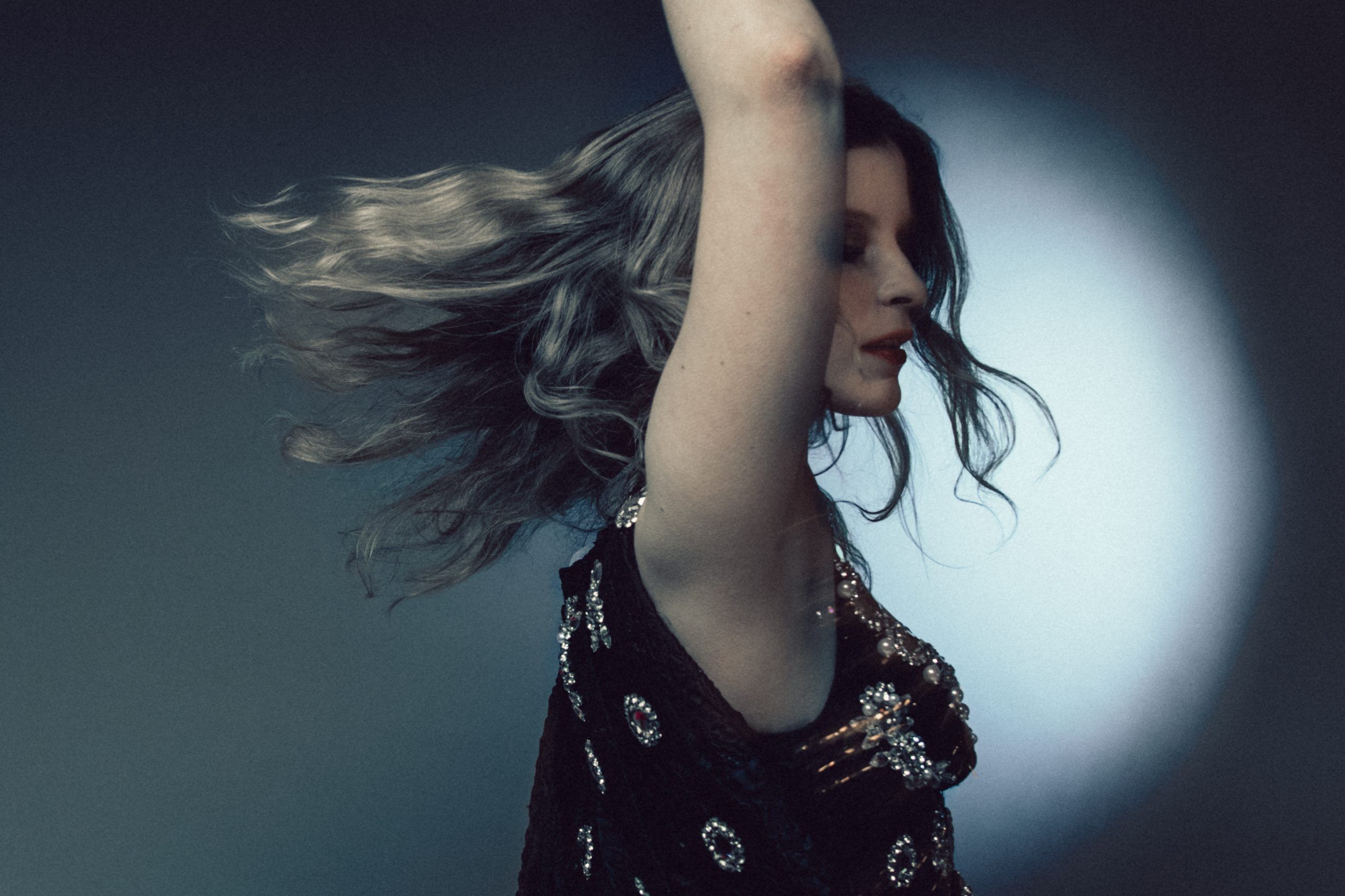
Circling back to the community built around you, I took a peek at Instagram and saw the Cacophony tour guide, which I think is a wonderful idea and a great way to elevate the concert experience. It’s so heartwarming to see it being put together. Was it the community that came up with the idea of trading books and notes and dancing at the end of your show?
The tour guide is an introduction to people who might be new to things that I’ve watched fans do. My fans affectionately refer to themselves as ‘the fairies.’ I noticed them bringing things and trading bracelets and things like that. And they’re all so creative. They’re so empathetic. The fairy messaging came out of that idea, where I was just like, “We’ve got such a wonderful community, we have to make sure that everyone’s talking to each other and giving each other messages and helping uplift each other.” That just took off insanely well [laughs]. Throughout the year, I have so many fairy messages in my apartment, I have boxes and boxes. But it’s about people coming together and sharing messages and keeping up that communication of joy, of empowerment of empathy.
Another thing is I partnered with Little Free Library, where we have a book swap at every show and people bring books and they take books home.
I love that idea!
It’s really important at this time. I feel like there are going to be some much more pointed books that have been threatened by the current administration in the US. The other thing which was so incredibly special, is that the tour guide is something the fans started doing completely on their own, like the dancing at the end of the show, joining hands together and including absolutely everyone.
One show in particular was so wonderful. I remember a fairy circle where one girl in a wheelchair was placed in the center of the circle, and every single person danced around her. I have no idea who started this tradition, but I know it was a show in Paris. That was the first time it happened. But it was so perfect and so wonderful. It continues to be a symbol, I feel, that we shouldn’t have to be angry, we have such an unbelievably huge capacity for joy. That’s what we deserve to manifest.
I love it, I spent half an hour to 45 minutes last night scrolling through TikTok and looking through all the fan videos, all the fairy circles. We need more joy. Moving away from Cacophony for a moment, you lent your voice to The Lord of the Rings: War of Rohirrim, for The Rider, how did your involvement in that project come to be?
I’m such an unbelievably huge Lord of the Rings fan. I don’t know by what mystical powers I had the unbelievable luck to be put forward for that song. I’m so grateful. I think it was through my publishers who put my name forward to people at Warner Brothers. I was so lucky that the wonderful Phoebe Gittins and the wonderful David Long, who wrote the song, were kind of enamored by it and felt I would be a good fit. As soon as I met Phoebe and Philippa (Boyens) and Arty (Papageorgiou) and David (Farmer) who built that film and built the music around it, and wrote this amazing story. It felt like such an incredible fit. I am so, so proud to have been a part of it. But also, you know, just as much even if not more, ‘m so proud to have worked with such incredible people. It’s one of the best experiences of my life and to have made those relationships with the people there.
You’re immortalized and tied forever with Lord of the Rings. That’s got to feel good.
I actually can’t explain how insane that is to me, and it will continue being one of the coolest things I’ve ever done.
Since exploding on TikTok and going viral, what have you learned about yourself as an artist and a person? How do you feel you’ve evolved?
I feel like when I move, and when I make choices, and when I say things, it does affect the world a lot more. It’s this feeling of futility in terms of your power diminishing more and more. The more I feel heard, the more that I feel like I have things to say. That’s through finding community on TikTok, on social media, through music, and at shows. You know, saying something and hearing it repeated back to you with 10 times the strength from people who were confirming, yes, I hear you. I’ve learned a lot about myself in terms of the strength that I’m growing to do what to me a year ago was a really daunting thing, which was going out and doing shows. I have a lot of therapy. There are a lot of things I’ve had to overcome to feel like I am strong and confident enough to do that.
That’s a continuous lesson. The self-work is never done. You’re always working to heal and be better and that involves a lot of introspection. I have to ask – you visited Joan of Arc’s signature and the account of Eleanor Rykener recently. What did seeing those two powerful women in, in, you know, in history, what did that mean to you?
Well, I think in the case of Eleanor Rykener, it’s so important now in this time to remember that trans people have always existed. They have always been there, and they have always been an example of the redundancy of gender norms and gender oppression. That was an incredible moment standing in front of the account of Eleanor at the British Library, the Medieval Women’s Exhibition. There’s something special when you are a woman looking at this time that we are in. Everyone’s always repeating, “Unprecedented times, unprecedented times.” I feel like I’ve yet to live through a precedented time [laughs]. Looking at these women who were living to a degree under the same power systems we’re living under now and looking at them and committing yourself to continue that work they started. Joan of Arc, a girl really, who was killed for the power and influence that she held over a country at the time. To stand there was truly something incredible. To just look at that and think, “I’m stood here as an independent human being who has a lot more power than those women did.”
Yet the power system is still there. Many women don’t have that privilege and that power that I currently hold because I am proportionately one of the most privileged out of any women anywhere. It was so important to visit that exhibition. I think every single girl and woman should visit if they can.
My last question, what is something you hope for the future? For yourself? And for the world at large?
For me, I hope to expand and to know more and be more and make art that feels more expansive and can be important to both myself and to people in the times we’re living in. For the world, I hope to see greater community and I hope to see more confidence in the power of people’s voices. I also hope to see the uplifting of people who understand more about power systems, in women of colour, trans women, queer women, disabled women, and working-class people. Because I think we’re living in a time where the truth is hitting everyone like a rock, and these people just haven’t been listened to. We have to have solidarity now to create an empathetic and empowering world.
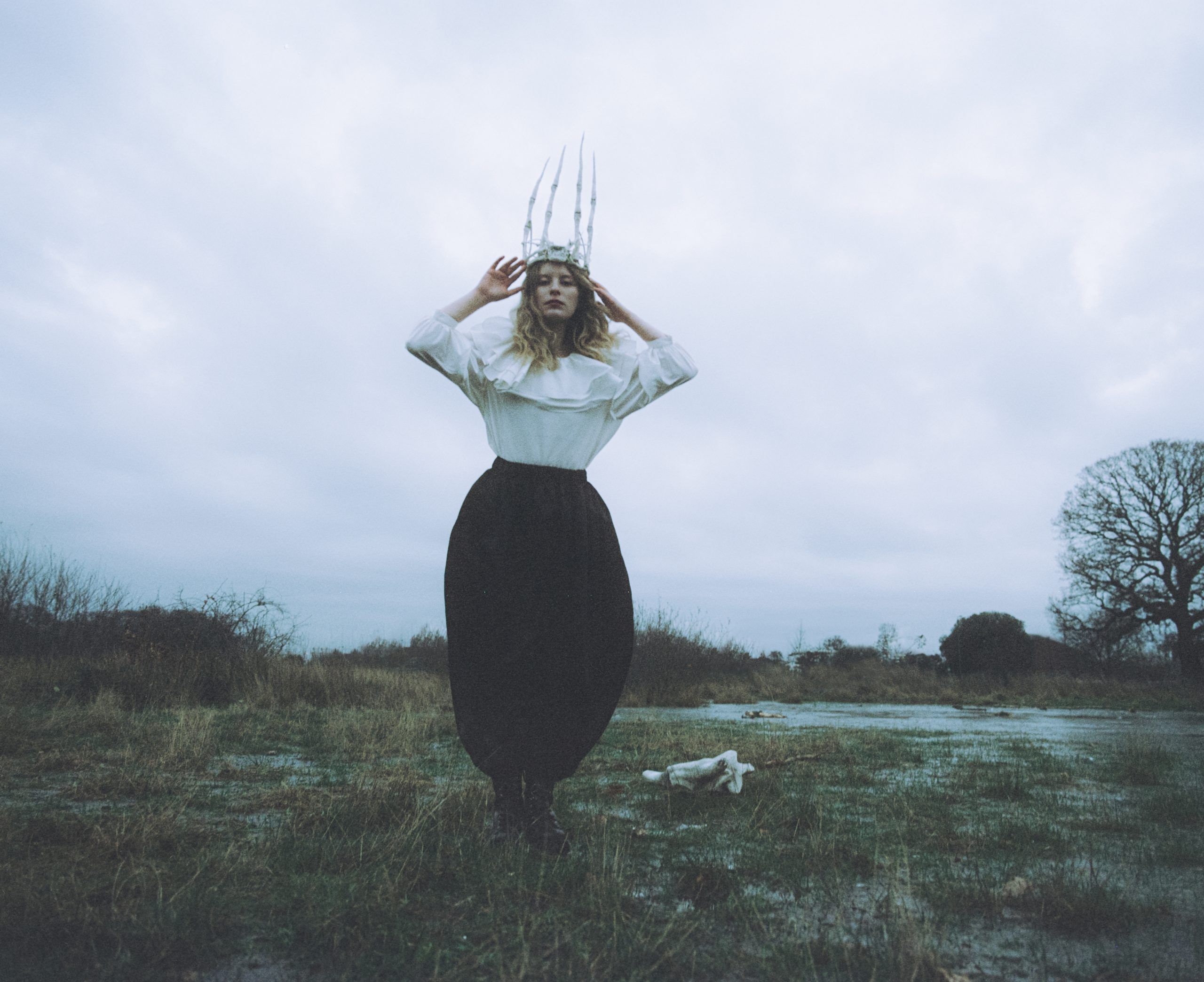
Interview Dana Reboe
Photography Jennifer McCord

